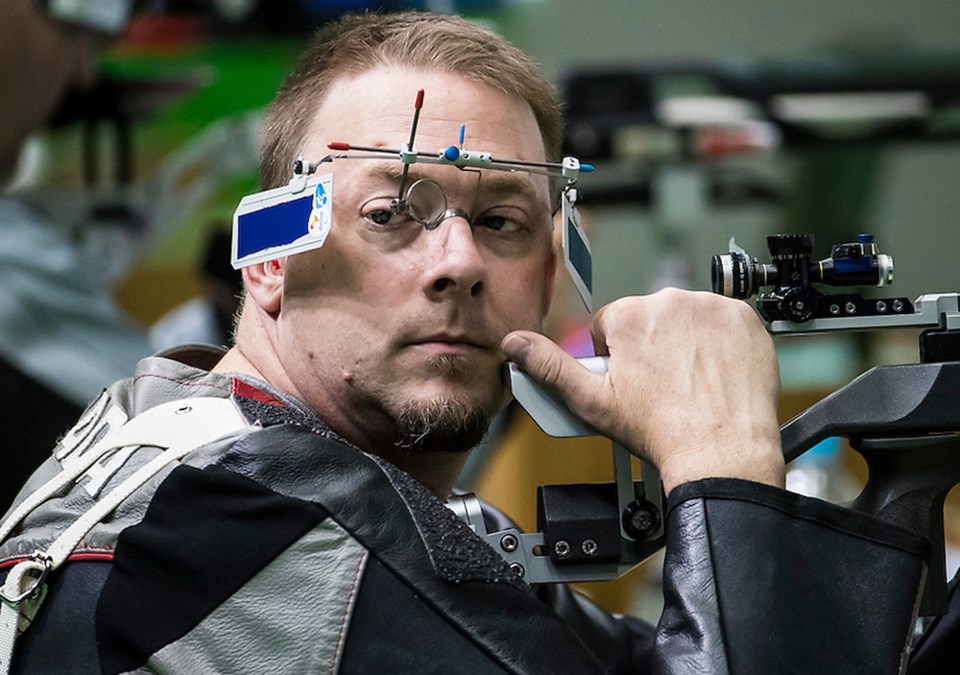As Port Coquitlam’s Doug Blessin embarks for his third Paralympic Games, he’s trying not to get too excited. It’s not good for his performance.
Blessin, 48, is a shooter and, as he says, “being excited and shooting perfect shots do not go hand in hand.”
To fire an air rifle at a tiny computerized target 50m away takes a sharp eye and measured control over one’s emotions and heart rate. Blessin said he’s at his best when he can slow his heart to around 50 to 58 beats per minute.
“Any lower and I tend to feel sleepy,” he said. “Any higher it can then affect your accuracy and you’ll have to add in the focus of really shooting between heartbeats.”
Attaining such control is a marked contrast to Blessin’s previous sport of wheelchair rugby, which he took up after he was injured in a car accident in 1995.
But fatherhood to twin boys pulled him away from that rough and tumble world. And when he was ready to again stoke his competitive fires, he said he wanted to try something with individual rewards and singular focus.
“I like being able to put that type of pressure on myself to perform,” he said.
Fond memories of target shooting with a neighbour of his grandmother’s drew Blessin to the range.
Training five days a week for three to six hours at Abbotsford’s Ridgedale Rod and Gun Club got him to the 2012 Paralympics in London, where he finished 24th in the 10m air rifle standing and 25th in the 10m air rifle prone events.
Adding a sport psychologist into his preparation for the 2016 Paralympics in Rio de Janeiro improved his standing to sixth in the 10m prone event.
Blessin said he expects nothing less than a medal in Tokyo.
“If you don’t go to the Games knowing you can win, then I feel you are not going for the right reasons,” he said. “After five years of hard training, you must know deep in your heart that you can win.”
But to achieve that, Blessin won’t just have to have full control of his heart rate and muscles: He’ll also have to block out all the distractions that have come from the year’s delay to the Games because of the COVID-19 pandemic, as well as travelling and competing in the continuing global public health crisis.
Already Blessin’s routine from his previous Paralympics has been disrupted.
Normally he would be at the athlete’s village as soon as it opens so he can acclimatize. But because of pandemic safety measures, he can’t arrive any more than five days before he begins competing on Aug. 30.
Once he’s shot his last event, the 50m air rifle prone on Sept. 4, he’ll have 24 hours to get on a plane back to Canada.
During the Summer Olympics earlier this month, Blessin struggled to find TV coverage of the shooting events so he could get a sense of the venue and any quirks it might present. Someone sent him photos, and the first thing he noticed was the lack of flags to indicate wind direction, for which shooters have to account while lining up their shot.
But the Tokyo range is indoors.
Blessin noted not only does that ensure a level playing field for all the competitors, he also won’t have to sweat Tokyo’s notorious summer heat and humidity.



